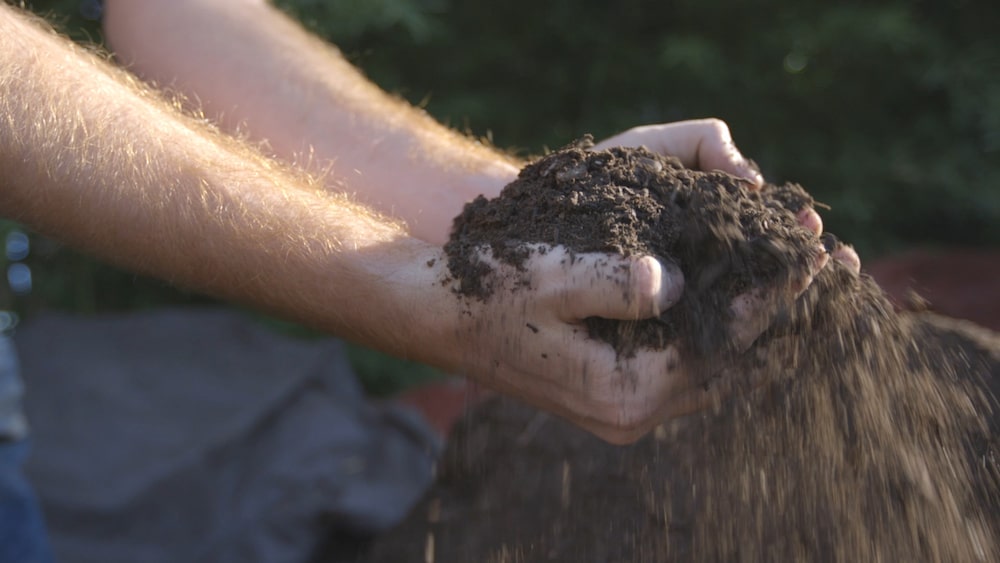
Creating compost from organic waste (Credit: Compost Pedallers)
Imagine Austin in 2040 as a zero waste city. That’s right. Our city has committed to reducing the amount of trash sent to landfills by 90 percent by 2040.
But what does that really mean? How does a city, and its citizens, reach such an audacious goal? Especially when the task at hand will take 25 years to complete? I sat down with Dustin Fedako, Compost Pedallers’ CEO–Compost Education Officer as he refers to it–to talk about composting in Austin, the laws taking effect in 2016 and how his company is paving the way by diverting organics in Austin.
Three R’s for the Environment
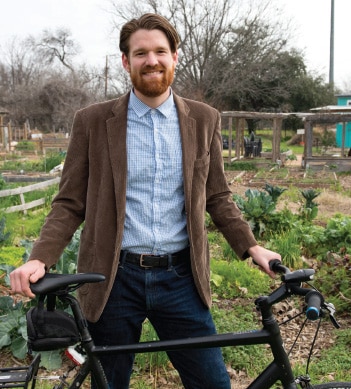
Compost Pedallers CEO, Dustin Fedako (Credit: Compost Pedallers)
While we may have been taught the three R’s as kids–reduce, reuse, recycle–many of us have not had meaningful conversations about consumption and waste as adults. That’s slowly changing.
In Austin, the Universal Recovery Ordinance (URO) is helping us reach Austin’s Zero Waste goal. The plan, launched in 2012, helps assure access to convenient recycling at home and work by 2017. The year 2016 marks the beginning of the organics diversion timeline, designed to help food enterprises and their employees access organics diversion services by 2018.
While the URO plan will take three years to implement in stages, many locals want to get ahead of the game.
The Dirt On Compost Pedallers
We’ve all heard the statistics about food waste in the United States. Upwards of 40 percent of our food goes to waste, and up to 97 percent of that waste goes into landfills. By composting, the average home can divert seven pounds of waste a week, and a small restaurant can divert anywhere from 200-1,000 pounds a week.
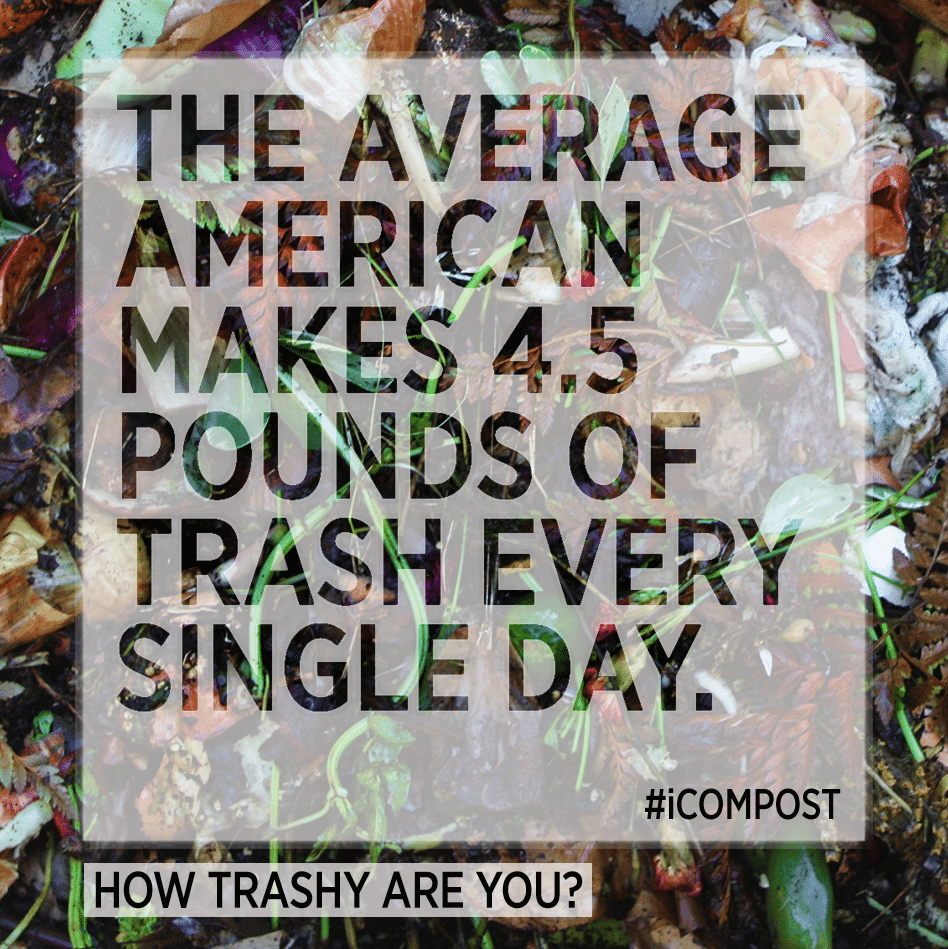
(Credit: Compost Pedallers)
These same stats inspired Dustin Fedako and Eric Goff to launch Compost Pedallers in 2012. They set out to solve two problems here in Austin:
- How to reduce the amount of trash that ends up in the landfill?
- What to do with organic waste?
They realized they could help “feed two birds with one hand,” as Fedako explained. They could take food waste from within a community, and deliver it to local farms and gardens to be composted. The food waste gets reused as fertilizer and becomes part of the soil. This completes the food circle.
Throw in bicycles for transportation, instead of diesel trucks, and this becomes a sustainable way to benefit the locally-sourced food ecosystem.
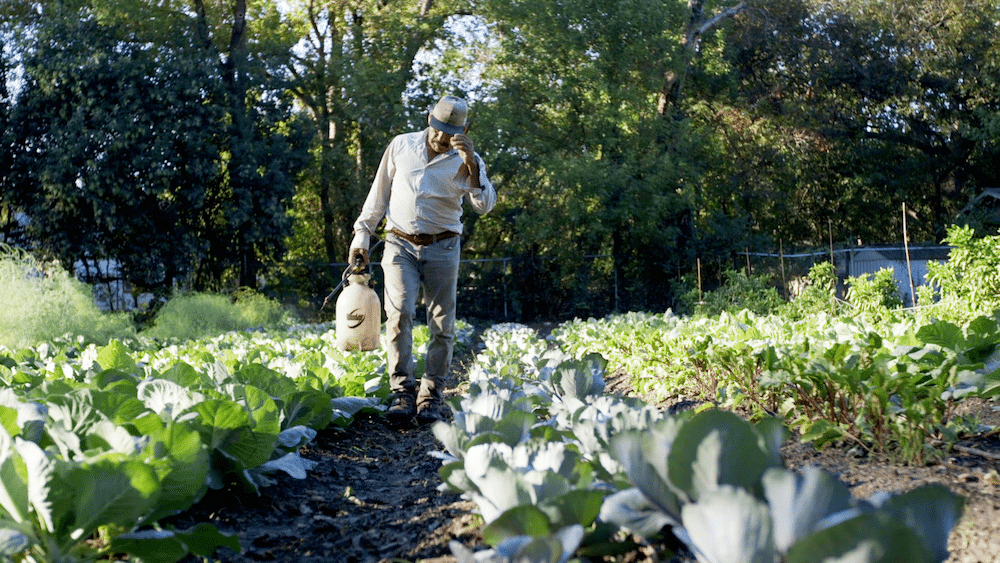
Local farmer with crops (Credit: Compost Pedallers)
Austin Resource Recovery has also been working on a composting program since 2012. When I asked Fedako about their program, he wasn’t concerned about competition. “The city’s timeline is very vague and who knows when it will happen. On top of that, it’s not as community-driven,” he expressed. “I’m not saying one is better than the other–there is room for both. Some programs work on smaller scales, such as Compost Pedallers, and others on a larger scale, such as helping grocery stores divert organic waste.
“We pride ourselves on making composting simple and rewarding. Austinites want to live their values.” This is what I love about Compost Pedallers. They are helping to make a change by working with communities and elected officials, instead of against them. They have even being contacted to help start similar programs in cities around the world.
Become Less Trashy by Composting
If you can recycle, you can compost! In 2015, Compost Pedallers and their members helped divert 300,000 pounds of organic waste from Austin’s landfills. In 2016, their goal is to divert one million pounds!
As Fedako described, “We are not just a composting solution; we are a community people can join.” Joining is simple. Check out their service area map to become a member. If they aren’t in your area yet, join the wait list as a way to “vote” for your neighborhood.
When you sign up, you’ll be provided with a five-gallon bucket for food waste, which gets picked up weekly.
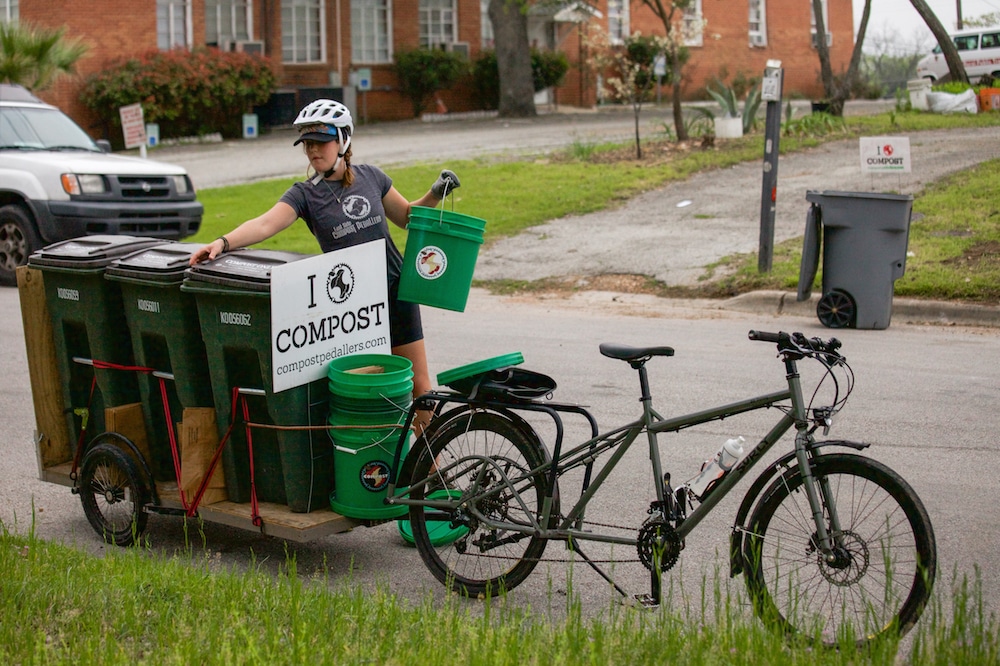
Compost pedaler Madeleine Froncek (Credit: Compost Pedallers)
Concerned about cost? The thought of additional costs often keeps people from recycling and/or composting. But adding composting to your existing waste management routine often saves you money in the long run. For example, by diverting organic waste, you might be able to downsize your city trash receptacle. According to Austin Resource Recovery’s website, “Downsizing from a 96-gallon cart to a 32-gallon cart will save you $226.80 per year.”
If you have a passion for cycling, join the Compost Pedallers team and become a part-time pedaller. Why pay to workout at a gym when you can get paid to bike around town?
While it may take 25 years to see the full effects of Austin’s Zero Waste Plan, every little bit helps along the way.
Learn more at CompostPedallers.com.
@jpino9 wants to know:
Are you currently composting at home or at your office?

Curious about the details of the business… non-profit? Subscription basis from the composting households? Or just running on the sales of the compost fertilizer?
Great questions, @jessecrallan:disqus. Compost Pedallers isn’t a non-profit. They have a weekly pickup fee. It’s currently $4/week for residential, and varies for offices and food service businesses (obviously depending on the volume of organic waste they produce). You can read more on their website.